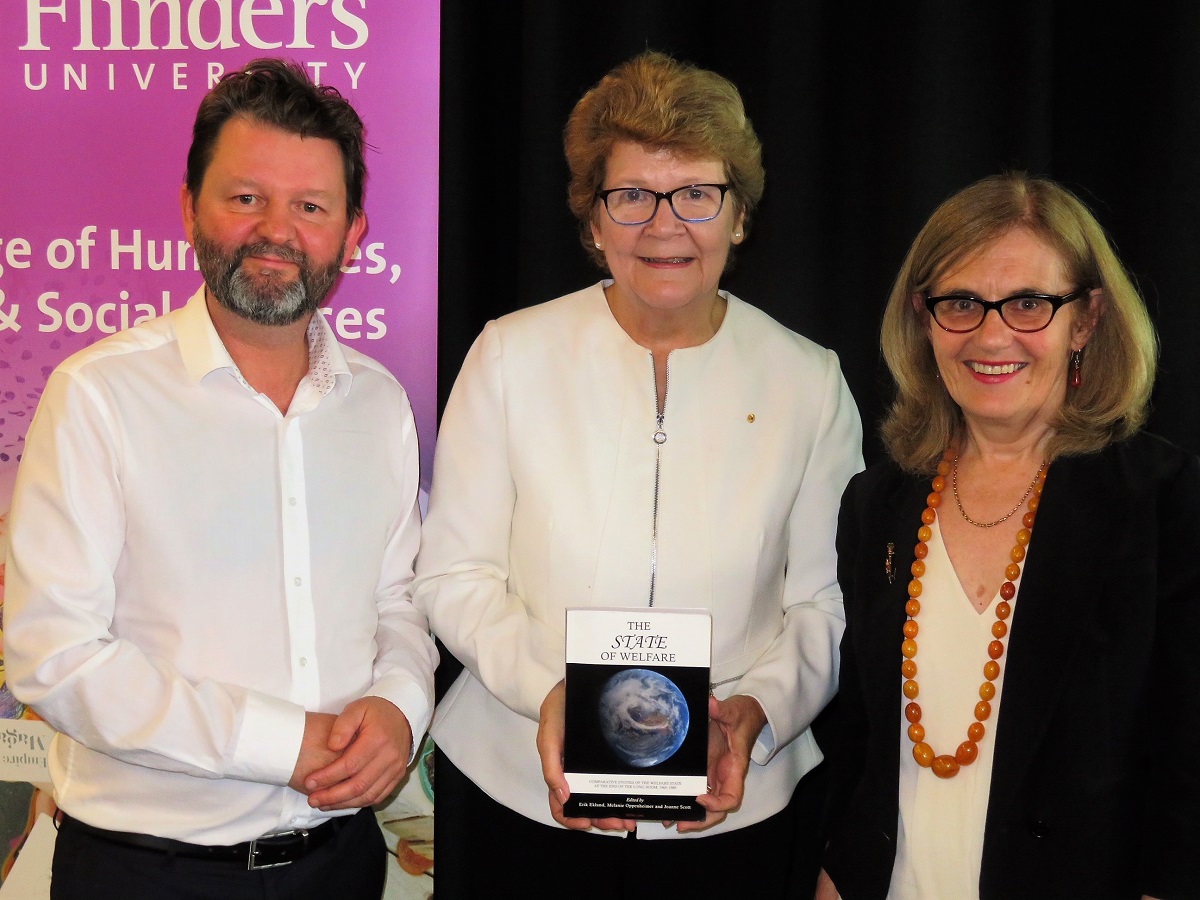
The lasting importance and influence of the Australian Assistance Plan, a grassroots 1970s social welfare program from the progressive years of the Whitlam Government, has been highlighted in a new book called State of Welfare.
The book is the result of a research project called Bold Experiment: An Historical Evaluation of the Australian Assistance Plan, which was led by Flinders University Professor Melanie Oppenheimer, working with Professor Erik Eklund (Federation University) and Professor Joanne Scott (University of the Sunshine Coast).
The book was launched with a ceremony at Alere Function Centre in Flinders University’s Bedford Park campus on March 16 by Sue Vardon AO, who gave evidence to the Bold Experiment project about her 23-year career as a social worker, which started with AAP initiatives at the Wagga Wagga Council and saw her rise to become a chief executive in both Commonwealth and State Government agencies.
Inspired by Gough Whitlam’s ‘Power and the Passion’ catchcry, the radical Australian Assistance Plan (AAP) introduced in 1973 gave federal funding to grassroots community organisations throughout the nation for the first time. Although the Fraser Government scrapped the AAP in 1977, the dynamic oral histories captured by the Bold Experiment researchers paint a very positive picture of the short-lived program.
Professor Oppenheimer believes the AAP directly plugged into the Flinders University spirit of adventurous experimentation and social action. Young academics in the 1970s, such as Flinders University Professor of Public Policy Adam Graycar, were evaluators of the AAP and the experience for them was life changing.
Bold Experiment: An historical evaluation of the Australian Assistance Plan was funded by an Australian Research Council Discovery grant. The oral histories and other materials collected by the researchers will be housed in the Flinders University Library Special Collections and available for consultation by others interested in this vital period of Australia’s history.

